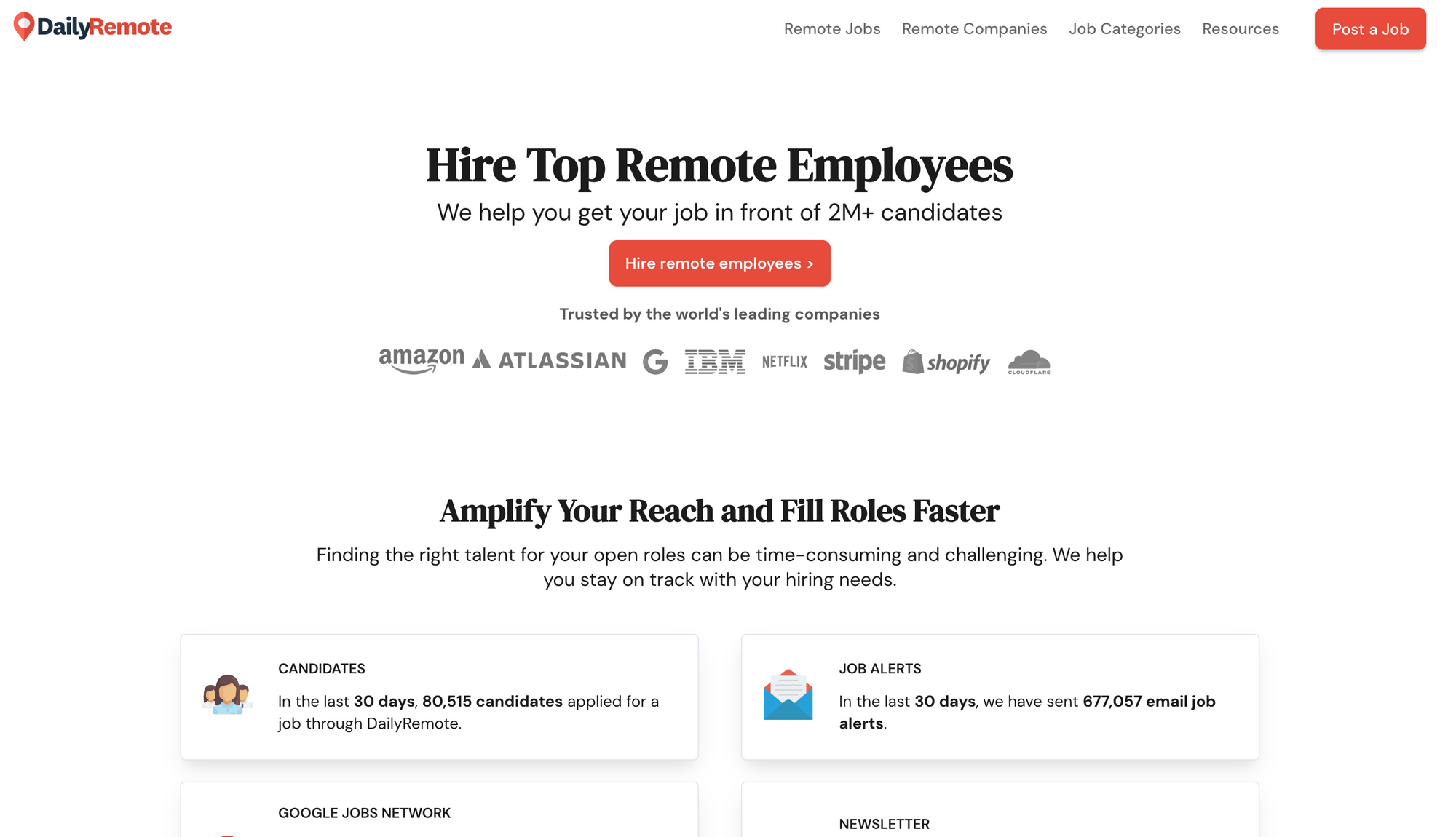While remote work might not be universally accepted, it is on the uprise. Hiring remotely can save your company money and attracting talent becomes easier as today's job seekers are more interested in remote work.
Everyone's Working Online Anyway; Why Not Hire Remote Employees
Because most everyone is already online during our waking days, whether, in or out of the brick and mortar office anyway; some call it a perk by adding flexibility for your onsite workers, versus online work to your new employees. Some companies get on board by supporting the value remote workers bring them.
According to Remoters, in their remote work status report, being ahead of the curve in remote working can help your company to become successful at hiring remote workers as the norm, not the exception to entice new employees.
Get Prepared
Part of being prepared to hire remote employees is understanding how the trend of remote work can be something your company can become proficient at learning. If you're looking to hire remote workers for a project or you are a company that supports hiring remote workers, you will want to consider some things
first to avoid making mistakes when attempting to hire good remote workers.
Three Important Planning Questions
You might begin with clearly defining the following three questions;
- Why are you hiring workers remotely?
- What are the roles; clearly clarified, that the remote workers will be responsible for performing for your company?
- What standard and/or preferred qualifications are you looking for in offering that good candidate a place in your organization to work remotely?
Once you have identified why you need to hire remote workers, what their roles are, and what your standard of what a good remote worker looks like, you are off and driving to avoiding unnecessary mistakes when hiring remote employees. Putting your best foot forward to implementing a step-by-step hiring guide to helping you be successful makes good business sense, and gets you one step closer to hiring good remote employees.
A Step-By-Step Guide That Fits Your Company
While there is no one step-by-step plan that fits all companies, there are some steps each company can take to ensure that their "how to hire remote employees" strategy is a winning success.
After your team has thoroughly answered the three basic questions; why hire remote workers, identify remote workers roles in your organization, along with identifying good candidate qualifications, you're off and running to moving onto strategizing pre and post remote employee best practices for hiring at your company.
Save Time By Strategizing
Take time to start some strategizing sessions with your team where you can begin to plan your perfect step-by-step plan that is the best fit for your company.
Including your current employees might be a good strategy to gather feedback about their perceptions and expectation about remote work, and working at your company with new hires being added to the team who will be working remotely when some of your current employees might not.
Clearing up any misunderstandings about how remote working is defined and expressed at your company culture, helps make inclusive efforts for implementing best practices for your "how to hire remote employees" work policy.
Aligning Preparation to Meet Strategy
- Talk to your current employees and get feedback about remote work.
- Brainstorm with your team about best practices for work policies.
- Draft a remote employee hiring work policy.
- Simulate implementation to notice gaps in hiring practices
Taking the time to be clear on your hiring work policy is essential to creating longevity for your remote working program to hit the ground running successfully.
Now that you've got that step completed, it's time to make sure that everyone at your company is clear about how you define "Remote Work" at your company and how this positively adds value to your culture.
Use sites like Indeed, Glassdoor, and LinkedIn to reach a wide audience. List your job post on industry-specific remote job boards like DailyRemote to find candidates with the relevant skills and experience.

Creating a Positive Remote Work Culture
Once you've discussed and defined, you're that much closer to creating a positive remote work culture for both existing employees and those new remote employees you're about to hire.
Remote = What?
- Does remote = working from anywhere or working only where your company is located but not onsite?
- Does remote = working 100% online?
- Does remote = working partially online and partially onsite?
- Does remote = working smarter and flexibly, which saves both employer and employee time and money?
Avoiding Common Mistakes
Unfortunately avoiding common mistakes on your road to "how to hire remote employees" might be an unnecessarily bumpy, windy path without getting prepared, asking the three important questions.
It also involves finding the step-by-step that fits best for your particular company, saving time by strategizing, moving onto aligning preparation to meet your company's strategy by forming an official hiring policy, and setting yourself up for ultimate success by creating a positive remote work culture through clearly identifying what working remote at your company means to you.
Some Don'ts to Soak In
- Don't have your steps and policies on auto-pilot where updates are a second thought.
- Don't treat remote work like it's a perk, rather than the company norm. if you're interested in longevity.
- Don't not define clearly how your remote employees add value to your organization.
- Don't make remote work so static that employee retention becomes the nagging pebble in your shoe
Do This, Not That
- Do think of remote work as humancentric even though your employees work remotely.
- Do build teams of remote employees for mentoring retention strategies.
- Do deflect static remote work through encourages connecting and sharing ideas.
- Do create a professional remote work platform for employees to be efficient and succeed.
Takeaway
Making remote work a profitable experience at your company is attainable. By creating an exceptional "how to hire remote employees" guide, you can attract top talent. And with your step-by-step plan in place, this sets the tone for avoiding common remote hiring mistakes, which helps retain good employees.
If you are looking to source great remote candidates, DailyRemote has a large remote community. You can post your remote job and get to choose from remote candidates from all over the world.
Hiring remote employees isn’t the same as hiring on-site employees, but not much different as well. But following the above remote hiring tips will help you hire the perfect remote employees, no matter what role you’re hiring for!

